All Available Episode
All Season 1 Episode
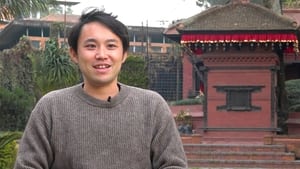
1. Digital Solutions for Healthcare Access: Nepal
In Nepal, the average life expectancy is 71 years, and 3% of infants die before the age of 5. Contributing factors are poor access to sufficient medical care in mountainous and remote areas and medical records that are often mistreated or lost, asking doctors to perform without their patients' accurate treatment history. To improve this situation, a Japanese NPO ASHA, led by President Nin Yoshifumi, teams up with a local NGO and IT company to develop a medical app to protect people's health. This program follows their operation taking off in a remote area 400 kilometers from the capital.
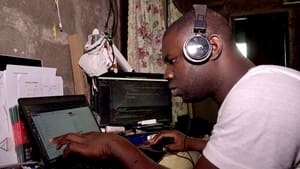
2. Borderless Opportunities Through Web Development: Benin
With an economy focused on agriculture and shipping, the West African Republic of Benin presents few opportunities for ambitious young people. David Kpondehou runs IT boot camps that equip attendees with the web development skills they need to secure remote jobs with international companies. The school's training platform, devised in Japan by Noro Hiroyoshi, has been used to train students in 6 countries across Africa. Follow an international partnership creating opportunities via the global language of coding.
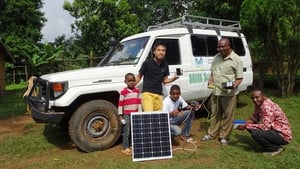
3. Solar-Powered Education: Tanzania
A project to reduce educational disparities among children in non-electrified areas of Tanzania has been underway since 2017. It is being jointly conducted by a Japanese NPO that strives to improve ICT education in developing countries and a Tanzanian NGO that has been addressing poverty in rural villages for 13 years. Together, they have introduced "off-grid" power systems using solar panels and batteries to 45 elementary and secondary schools, thereby bringing light to the darkness.

4. Connecting Ukraine, Poland, and Japan
After the Russian invasion of Ukraine, over 3.2 million people, largely women and children, fled to Poland. Government budgets are stretched thin, and many civilian volunteers are providing support. Japanese international student Azuma Yugo lives in the border town of Katowice with his fiancée Marta. The couple has offered their home to evacuating families, and delivers food and supplies to other evacuees in the town. As the war continues, they've begun working with a Polish NGO to set up a childcare center with the goal of helping evacuee mothers achieve independence. We follow them on their quest to support the Ukrainian people.
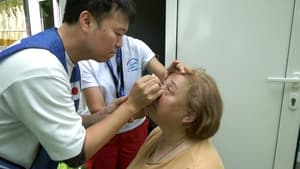
5. Medical Support for Ukrainian Evacuees: Hungary
The invasion of Ukraine has driven over 6 million citizens to seek refuge in nearby countries. In Hungary, close to the Ukrainian border, is a help center set up to support arriving evacuees. An on-site medical facility sees volunteer staff sent by a Japanese NGO work alongside European medics to provide appropriate care in the limited time available before evacuees set off on the next leg of their journey, while also doing their utmost to provide emotional relief for adults and children alike.
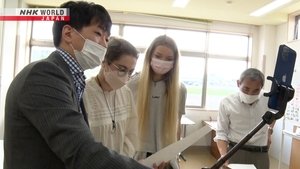
6. Social Platform Pulling for Ukraine: Japan
Okamoto Hiroki is the founder of a unique new social media platform that is now working to assist those affected by the ongoing conflict in Ukraine. Launched in January 2022, Omusubi Channel promotes exchange between Japan and the world through culturally themed video livestreams from 84 countries and regions. The site is now leveraging the power of social media to help provide a stable income for those caught up in the conflict, as well as assisting Ukrainian streamers in evacuating to Japan.
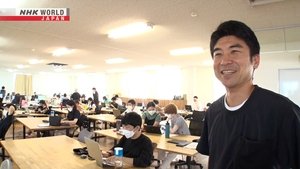
7. Tackling Social Issues Through Business: Japan
Fukuoka Prefecture in southwest Japan is home to Borderless Japan, a unique company that seeks to tackle issues such as poverty, prejudice and pollution through the founding of multiple social businesses. The firm currently operates 47 such ventures in 16 countries and regions around the world, using a groundbreaking model that circulates both funding and know-how between existing enterprises and new ones. We examine the story of one such project, a garment factory supporting women in Bangladesh.
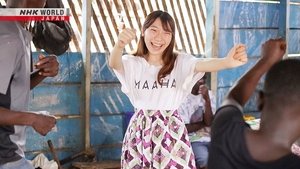
8. A New Route for Quality Cacao: Ghana
Ghana in West Africa is a major producer of cocoa beans, the key ingredient in chocolate. Some of the country's 850,000 cocoa farmers make less than a dollar a day, and it can be a struggle to make ends meet. Four years ago, Taguchi Ai from Japan set up a project to raise local incomes. She worked with farmers in the village of Amanfrom to improve the quality of their beans, using their produce to make and sell high-end chocolate in Japan, and returning the profits to the village. Follow Taguchi and the local cocoa farmers as they work to enrich lives through chocolate.
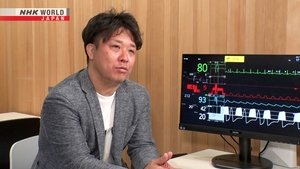
9. Transcending Borders with Remote ICUs: Indonesia and Mexico
Severely ill patients are treated in ICUs, but there's a global shortage of facilities and staff. The units require top technology and skills and developing countries struggle to train staff and fund such facilities. A Japanese start-up supports these units by remotely connecting them with Japanese ICU teams. Since 2020, hospital ICUs in 12 developing countries can share patients' medical records, cardiograms and images online. Explore this new medical support project and its focus on ICUs.

10. Empowering Syrians Through IT
Civil war has raged in Syria since 2011. Youth unemployment is at 26%, and the cost of living continues to rise. Established by Sakashita Yuki and two Syrian partners, Japanese firm Bon Zuttner hires Syrian IT engineers both in Syria and abroad to develop software for Japanese firms. Sakashita has also launched a new program involving machine learning that allows Syrian mothers to work and earn an income from home. Discover how the IT industry is supporting the lives of Syrians around the world.
